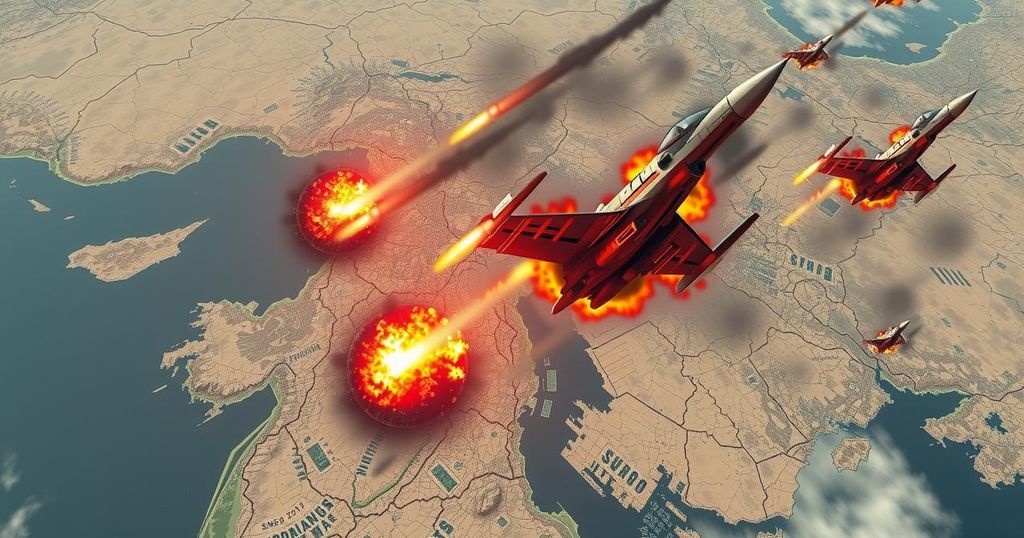Israeli airstrikes in northwestern Syria have caused powerful explosions registering as a 3.0 magnitude earthquake, marking a significant military escalation. Targeting key military facilities near Tartus, the attacks aim to eliminate weapons that could empower extremist groups amid Syria’s internal upheaval. The international community has responded with mixed reactions, highlighting complex geopolitical dynamics that are likely to affect regional stability for years to come.
In a significant escalation of military actions, Israeli airstrikes in northwestern Syria have produced explosions powerful enough to register as a 3.0 magnitude earthquake, indicating a dramatic surge in the intensity of regional conflict. The Israeli Defense Forces (IDF) targeted military infrastructure and munitions depots near Tartus, resulting in substantial destruction characterized by a massive mushroom cloud and tremors felt many miles away. This operation not only marks Israel’s heaviest bombardment in over a decade but also highlights a pivotal shift in its military strategy in response to changing circumstances in Syria.
Military analysts suggest that the airstrikes aimed to eliminate weapon stockpiles that could potentially empower extremist factions, especially following the destabilization due to President Bashar al-Assad’s ousting. The ensuing power vacuum raises concerns about the proliferation of advanced weaponry among various non-state actors in the region. The operation has drawn criticism and condemnation from nations such as Iran and Qatar, who argue that Israel is leveraging Syria’s internal chaos for its own military objectives.
International responses to these strikes vary, with some allies of Israel supporting the actions as necessary for national security, while others view them as breaches of sovereignty. The broad implications for regional stability are significant; such overwhelming use of military force could set a precedent for future engagements, potentially lowering the threshold for subsequent interventions. Furthermore, the environmental and safety repercussions of these strikes raise additional humanitarian concerns amidst an already tumultuous backdrop in Syria.
Reports suggest that targeted facilities in Tartus were integral to Syria’s military logistics, harboring advanced missile systems and munitions. As Israel continues its operations, the overall impact of these airstrikes on Syria’s military capabilities and regional geopolitics is still unfolding. Analysis indicates that the ramifications of this unprecedented military action will resonate across the Middle East for years to come, reshaping security dynamics in the region.
The backdrop of this article involves escalating tensions in the Middle East, particularly regarding the impact of Israeli military operations in Syria. The airstrikes, particularly aimed at destabilizing potential threats from extremist groups amid the political upheaval following the ousting of President Bashar al-Assad, reflect Israel’s ongoing strategic considerations in maintaining its national security. The reactions from international players further underscore the complexities of regional politics, emphasizing the intertwined nature of military actions and diplomatic relations in the Middle East.
In conclusion, the recent Israeli airstrikes in Syria represent a notable escalation in military engagement that has prompted widespread geopolitical repercussions. The unprecedented destruction and seismic impact of these operations signal a shift in Israel’s military strategy, influenced by the prevailing instability in Syria. The international response to these actions reflects the contentious nature of the conflict, with potential implications for regional security dynamics that may persist for the foreseeable future.
Original Source: themusicessentials.com






